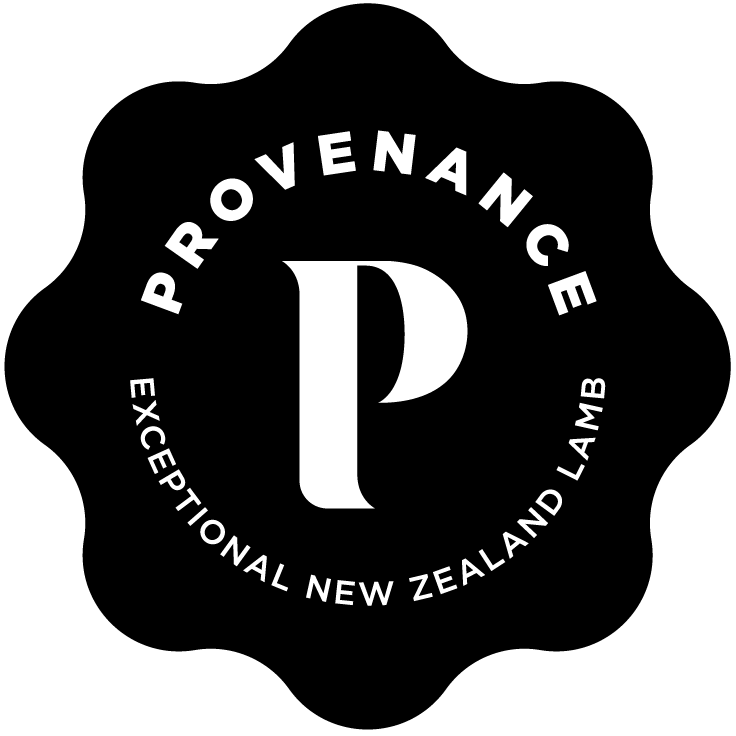
WHY WE ARE THE EXCEPTION.
Behind Provenance stands David Crutchley – farmer, visionary.
His is a personal story of discovery born of necessity yet it has global implications…
The Reset.
“For us, farming is about a complete change in how we go about agriculture in New Zealand… showing we can do better and still do well. We saw that agrichem farming is destructive so we changed how we did things… but what makes Provenance the exception is not just that we changed… the surprise is that we so enjoy creating food the way we do… eating off our land… it’s a good thing… and we just want to share that with others.” David Crutchley
Why we are the exception.
Provenance has been built literally from the ground up by the Crutchley Family on their farm in the Otago region of New Zealand’s South Island.
Situated in stunning high country, Shortlands Station has been in the family since 1946. With hard work and shrewd management, over three generations, Shortlands grew both in size and output. It is from here that Provenance sources its lamb.
Yet by the early millennium, despite outward appearances of prosperity, David could see it wasn’t sustainable. “We were taking advice, doing all the ‘right’ things… irrigating, dumping more and more agrichem on the land but getting less and less back… The land seemed somehow dead”.
The mind shift
Recognising that industrial farming was depleting soil quality and, with it, animal health and farm productivity, David began researching how to achieve better results. His goal was “to bring the farm back to life” – to find a sustainable farming method that was good for the land while providing for future generations. “We were farming according to accepted practice. But something had to change… The soil is our legacy… We need to leave the land better than when we took over its stewardship and we weren’t doing that.”
A new way of farming.
In the past 10 years the Crutchleys have completely transformed the way they farm.
The key was restoring biological processes to the soil, moving away from a reliance upon agrichemicals that artificially promote growth. “Building living soil that does the growing for you, has proved a powerful, natural solution for creating nutritious forage,” says David, “the animals are so much healthier, the land so much more productive.”
David soon discovered he was not alone in this way of farming. In fact it has a name and respectable pedigree – some call it ‘Biological Farming‘, others ‘Holistic Farming‘, others simply, ‘Ethical‘.nce.
Natural Imputs.
This new way of farming is about working with the natural rhythms and biological processes of the land to create wholesome food. It involves the use of natural inputs to help start the microbiological processes of the soil. As soil life returns so less input is needed.
“Rather than feed the plants with chemicals, we feed and nurture the soil which grows the pasture”, says David. “It’s a simple principle but it makes a huge difference to the land, to the animals, to farming.”
Diversification of forage and proactive, smart grazing management further enhance care for the soil. Combine this careful choice of sires and exceptional results are achieved.
Exceptional results.
In 2014 this was recognised when David was awarded ‘The Supreme Healthy Soils Agricultural Innovation Award’. The awards continue. His son, James, won a Gold Medal in the coveted ‘NZ Glammies Awards’ in 2013 and silver in 2014. Son Charles won a Silver Medal in 2017.
Alongside these achievements the farm has flourished. A reduced cost structure through using less, lower cost inputs and biological farming practices, has resulted in higher productivity. Nourishing pasture makes for lambs that thrive. Increased animal resilience has meant fewer stock loses. Exceptional meat yields per animal (18% over the NZ carcass average), have become the norm.
Moving from an industrial model to an ethically based holistic model has also brought personal benefits for the Crutchleys. As David puts it, “we have rediscovered the joy of farming, living close to the land”.
Wider impacts – our future.
Against the back drop of our global environmental crisis, the good impacts of bio farming extend beyond the Crutchley farms.
Healthy soils aren’t reliant on chemical inputs such as acid processed rock phosphate and urea with attendant leaching into waterways.
The same goes for weed control. Weeds dominate in poor soils. When soils are healthy, desired forage species out compete weeds without the need for potentially harmful sprays.
A key aspect of biological agriculture is carbon sequestration. Well established science recognises the role of living soil in absorbing and transforming animal waste into carbon stored in the soil. This further assists the enrichment of pasture.
Emerging research shows that biologically farmed animals can have a significantly lower hoof print – including potentially hugely reduced emission levels achieved through natural inputs. This mitigates concerns around food miles of exported meat.
The exception – surprised by joy.
As our lamb goes to an international market, the same care and attention given to farming has extended to each stage of the supply chain – as a browse through these pages will testify.
Yet it’s not only creating an exceptional product, nor doing things differently, that makes Provenance the exception.









